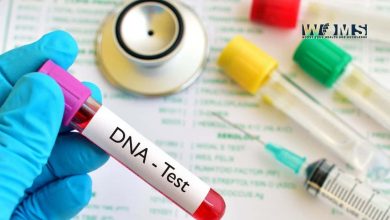Understanding the Effectiveness of NIPT to Predict the Risks of Down Syndrome

Non-invasive prenatal testing (NIPT) is becoming an increasingly preferred option for pregnant women. It can determine whether their baby is at a higher risk of having a chromosomal disorder, such as Down syndrome.
The global NIPT market size, which was $2.95 billion in 2019, is expected to reach $10.88 billion by 2027. If you are wondering, “what is NIPT?” you must know that it is a test that uses blood drawn from a pregnant woman and uses DNA to estimate how likely the fetus is to have a chromosomal disorder.
As the name suggests, it can be performed 10-14 weeks into the pregnancy and is a non-invasive procedure.
Knowing your options and understanding key aspects of this prenatal screening option may help you decide whether or not to have a NIPT test performed. Here’s what women should understand before taking it.
What is NIPT?
Before going into detail about what this prenatal screening test entails, it’s important to have a basic understanding of the biology behind fetal chromosomes.
The reproductive cells in men and women each contain 23 pairs of chromosomes 23 from mom and 23 from dad. The total number of these chromosome pairs in every cell is 46.
By the time a woman is four weeks pregnant, her reproductive cells have multiplied to form what’s known as a zygote. The zygote has the complete set of 46 chromosomes 23 from mom and 23 from dad.
However, there are some variations in which chromosomes come from which parent at this early stage of development, and these variations can change the number of chromosomes in the fetus.
Most people familiar with prenatal testing for chromosomal disorders know that an abnormal number of chromosomes that is, changes in the standard 46 chromosomes can lead to congenital disabilities or developmental problems.
Such disorders are known as chromosomal disorders or “chromosomal abnormalities.” Examples include trisomy 21 (Down syndrome), trisomy 18 (Edwards Syndrome), and trisomy 13 (Patau Syndrome).
How Does the Test Work?
NIPT involves the analysis of cell-free DNA found in a pregnant woman’s bloodstream. This circulating cell-free fetal DNA comes from the placenta, an organ that forms within weeks after conception to nourish the fetus.
Cell-free fetal DNA can be found in the mother’s blood within 10 to 13 weeks of pregnancy. It represents fragments of DNA from the placenta shed into the bloodstream and filtered by the kidneys.
These cell-free DNA segments come from both the baby and the placenta, but there are differences between the DNA from each. Maternal DNA makes up about 6 percent of all cell-free fetal DNA in the mother’s bloodstream, while the placenta contributes about 94 percent.
NIPT involves isolating these fragments of fetal DNA that are circulating freely in the mother’s blood and then testing them to identify the risk of chromosomal abnormalities.
NIPT is more than 99 percent accurate in detecting Down syndrome compared to standard prenatal screening methods.
Effectiveness for Detecting Autosomal Aneuploidies
Current research indicates that the effectiveness of NIPT for all chromosome abnormalities is around 80 percent.
It means that for every 100 women who receive a positive result on their test, an average of 20 will not have an affected fetus.
Effectiveness for Detecting Sex Chromosome Aneuploidies
The test has limited effectiveness for detecting sex chromosome abnormalities such as Turner Syndrome (45, X) and Klinefelter Syndrome (47, XXY).
Autosomal trisomies such as those associated with Down syndrome are affected by the female’s age; teens have a higher risk of having a baby with one of these conditions than women in their twenties or thirties.
Effectiveness for Detecting Trisomy 13 and 18
The test has a high degree of accuracy for detecting trisomy 13 and 18, which involve abnormalities in chromosomes 13 and 18, respectively.
What Should You Know Before You Choose to Do NIPT?
Now that you know the answer to the “what is NIPT?” question, here’s some more essential information about this NIPT to help you make an informed decision.
NIPT is not currently offered as part of standard prenatal screening guidelines. Instead, it’s typically an additional test that can be added to the current protocol. It includes an ultrasound, blood test, and maternal interview.
NIPT costs around $500 to $2,000. However, private insurance plans often cover the cost, and some states require insurers to cover it.
Prenatal testing for chromosomal disorders can be an emotionally trying experience. If you are pregnant or thinking about becoming pregnant and have a family history of chromosomal disorders or other factors that increase the risk of these conditions, consider talking with your doctor about NIPT to learn more.




